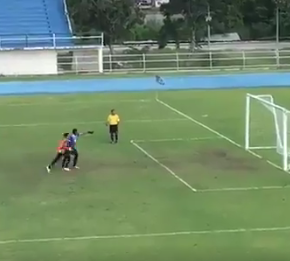History is rarely black-and-white, but in soccer, you can still pull the exact watersheds. In the summer of 1992, Old Soccer came out to hand over Modern Soccer, considering that summer the Premier League was founded, the Champions League was renamed, and home bans were banned. For the manu united liverpool tickets this is important.
Of course, the changes that have taken place since then have not all improved the game. While not many people argue that the best sorcerers have the right to make good money during their short careers, it has to be acknowledged that since Jean-Marc Bosman’s case, there have been fairly unfair pay scales, even though soccer is earning tremendous revenue on tickets, products and of course through broadcasts.
- It is also painful that in higher circles they pretend that there was no soccer before 1992, thus legitimizing the very questionable interests behind the founding of the Premier League.
- Among other things, these arguments led to a wave of dissatisfaction that received the Modern Soccer tag on the net. Unfortunately, in many cases, protesters made up of worried citizens, rebels and old-fashioned fans are right. Yet, as it used to be, the situation was endlessly simplified, and they came to the usual conclusion: if it was bad now, it must have been better in the past. According to professionals nostalgia kills criticism. That’s why a generation of digital natives called the scapegoat of the ’90s, because they hadn’t seen what it was before.
We wouldn’t even look for someone to cry back in the ’80s when he was there and see what it was like. In fact, the great transformations of the 1990s were profitable, but they also represented cultural and social transformations that brought great advances in communication, entertainment, quality, accessibility, responsibility and choice.
We are not here to talk about what went wrong in the ’90s: we are talking about how the game has become much better than it used to be. In order to do that, we first need to go back to the late ’80s to see how big of a thing we had to get out of English soccer.
The Secrets of The ’80

You’re dirty. You are a criminal, if not really, but the intention is definitely in you. Like cattle to the slaughterhouse, they are diverted from police stations to a tight stadium and crammed into a crumbling, uncovered auditorium surrounded by life-threatening fences.
1985: The Heysel tragedy, the Bradford disaster, the Luton-Milwall riot when English troops were banned from European Cups. The Times wrote about soccer at the time: “a miserable game played in a miserable stadium for increasingly miserable people.” It’s not hard to see that “miserable” as “dirty.”
In the 1980s, the English economy was in severe crisis. And the average cracker belonged to the social class most affected by austerity. Most of the turmoil in 1985 was far from the field, yet everyone blamed soccer. After what happened at Heysel Stadium, Prime Minister Margaret Thatcher organized a crisis meeting where she asked about her plans for English soccer hooligans. Ted Croker, the president of the FA, had so much mourning to confront. These people have social problems. After a century, Croker was the first FA president to be knocked out.

